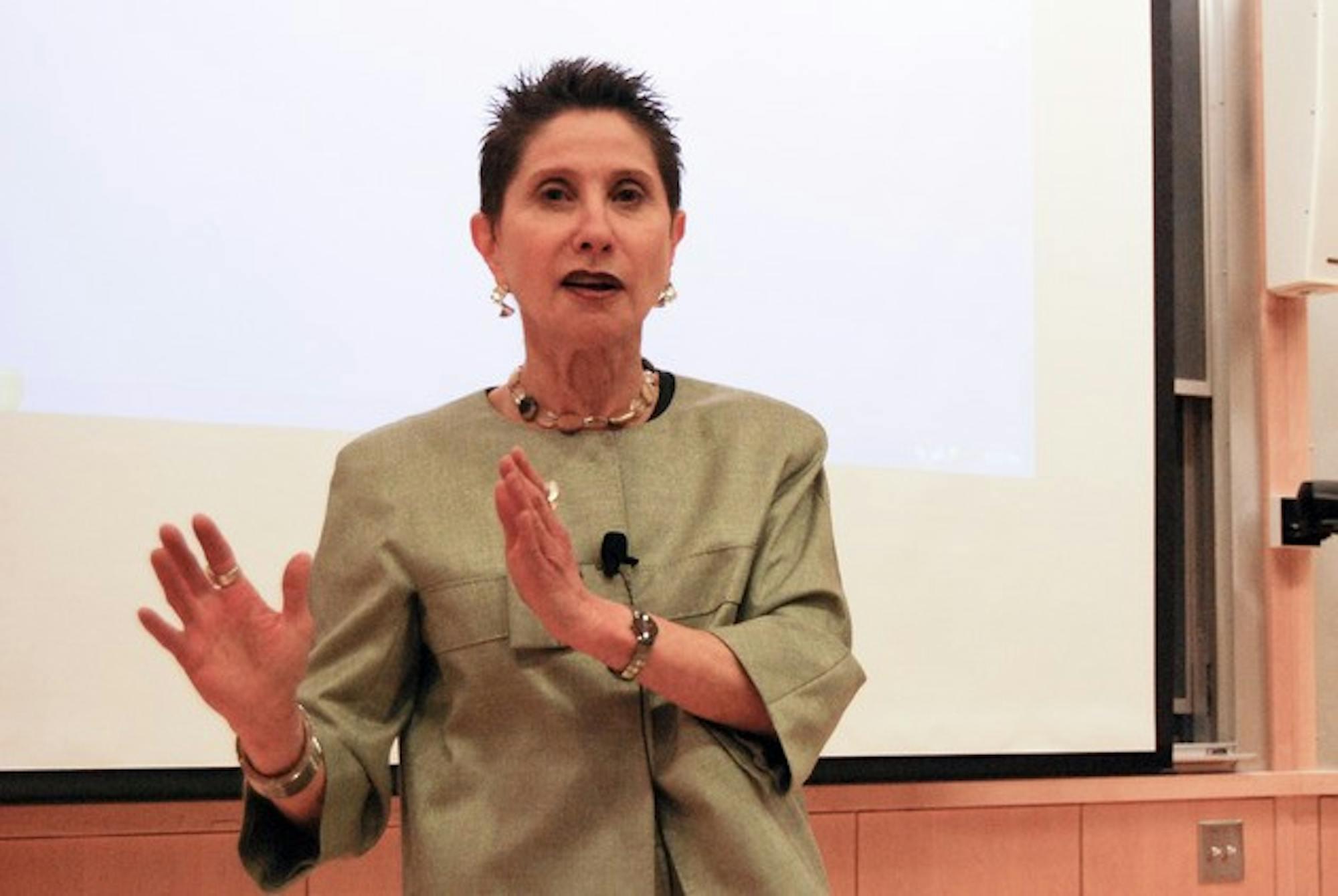Sommer, who is also the director of graduate studies in Spanish at Harvard, spoke about the decline of the arts in education over the past several decades and the need to strengthen their role in school communities. She called for teaches and other "everyday leaders" to forge the way for an elevated emphasis on arts education.
"We need to raise the level of intellectual artistic engagement," Sommer said. "Scholars and teachers can [contribute] to art's success, can train us to be artists ourselves."
Sommer emphasized the influence of the arts in creating social change and lauded former President Franklin Roosevelt's New Deal program the Work Projects Administration which employed millions of Americans in producing public works of art.
"The arts thrive on social challenges," Sommer said. "They act as our greatest natural resource to address the world's fundamental challenges, and social development needs the innovation and judgment that the arts cultivate."
Sommer drew from stories of pantomime performances, youth orchestras and interactive theater productions across Colombia and Argentina as examples of successful arts implementation in various communities.
"[These] raise attention to particular issues, but they don't stop there," Sommer said. "They send ripple effects into further artistic institutions and effect change in science and politics through art."
The role of the arts in inspiring imagination and creativity is advantageous as communities and their leaders seek to resolve social and political issues, Sommers said. She urged audience members to support arts initiatives that engage students in a variety of different ways.
"We need to ponder the validity of these worthwhile projects, and aesthetics and the arts can be a first move," Sommer said. "It's a little through the side door to think imaginatively and find a variety of solutions, and that sparks more experience and education."
Sommer discussed her role in Cultural Agents Initiative a Harvard-affiliated program that supports the arts and humanities as social resources and read an excerpt from her forthcoming book on arts implementation.
Before transitioning the lecture to a discussion session, Sommer showed a film clip of an Argentinean cartonera, a progressive independent publishing house that buys used cardboard from individual cardboard collectors and uses it to make books that can be sold inexpensively.
Her lecture, "Welcome Back: The Humanities as Civic Education," was co-sponsored by the Leslie Center for the Humanities and the comparative literature department, and took place in the Haldeman Center.
The lecture series is held in honor of Susanne Zantop, who was murdered along with her husband Half Zantop by two local teenagers in their home in Etna, N.H., in 2001. Susanne Zantop served as chair of the German studies department and was active in the comparative literature and women's and gender studies programs at the College, while Half Zantop was an earth sciences professor.




